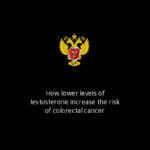What caused an increase in colorectal cancer in adolescents and young adults in the united states?
There has not been any evidence of an increase in colorectal cancer in adolescents and young adults in the United States. In fact, colorectal cancer in general is more common in older adults, with the vast majority of cases diagnosed after the age of 50.
However, there has been an increase in the incidence of colorectal cancer in young adults under the age of 50, which has led to concerns about the trend. According to the American Cancer Society, colorectal cancer incidence rates have been increasing by about 2% per year in adults under age 50 since the mid-1990s.
The reasons for this increase are not entirely clear, but several factors have been suggested, including changes in lifestyle and dietary habits, the use of certain medications, environmental factors, and changes in the microbiome of the gut. Obesity, lack of physical activity, and diets high in processed and red meat have also been associated with an increased risk of colorectal cancer in younger adults.
The role of pathogenic microbial flora
There is a growing body of research suggesting that the composition of the gut microbiota can play a role in the development of colorectal cancer, this is a complex and multifactorial process that involves a variety of genetic, environmental, and lifestyle factors.
What lifestyle factors affect the gut microbiota?
There are several lifestyle factors that can affect the gut microbiota, including:
Diet: The types of foods you eat can have a significant impact on the composition and diversity of your gut microbiota. A diet high in fiber and plant-based foods has been shown to support a healthy gut microbiota, while a diet high in saturated fat, added sugars, and processed foods can disrupt the balance of bacteria in the gut.
Antibiotic use: Antibiotics are medications that are designed to kill bacteria, but they can also have unintended consequences for the gut microbiota. Antibiotics can disrupt the balance of bacteria in the gut, potentially leading to dysbiosis and other health problems.
Stress: Chronic stress can affect the gut microbiota by altering the release of hormones and other signaling molecules in the body. This can lead to changes in the composition and function of the gut microbiota.
Exercise: Regular physical activity has been shown to support a healthy gut microbiota by increasing the diversity of bacteria in the gut.
Smoking and alcohol use: Both smoking and excessive alcohol consumption can disrupt the balance of bacteria in the gut and increase the risk of dysbiosis and other health problems.
What lifestyle factors affect the gut microbiota of your sexual partner?
The gut microbiota is influenced by a variety of factors, including diet, stress, medications, and other environmental exposures.
Some factors that may indirectly affect the gut microbiota of a sexual partner include:
Shared diet: If two people share a household and consume similar diets, it is possible that their gut microbiota may become more similar over time.
Antibiotic use: If one partner takes antibiotics, it is possible that this may have an impact on the gut microbiota of their sexual partner.
Shared environment: Exposure to shared environmental factors such as household pets, cleaning products, and other environmental toxins may indirectly affect the gut microbiota of both partners.
Sexual practices: While there is limited research on this topic, some studies have suggested that sexual practices such as anal sex may have an impact on the gut microbiota due to the transfer of bacteria from the rectum to the vaginal microbiota.
The gut microbiota is a complex and dynamic ecosystem, and the interplay between various lifestyle factors can have complex and sometimes unpredictable effects on the microbiota.
What genetic variations in the FTO and MC4R genes are associated with an increased risk of colorectal cancer?
Genetic variations in the FTO and MC4R genes from one african parent increase the risk of colorectal cancer in racially mixed population
There is some evidence to suggest that certain genetic variations in the FTO and MC4R genes may be associated with an increased risk of colorectal cancer. However, it is important to note that the relationship between these genetic variations and cancer risk is complex and not fully understood.
While these genetic variations may be more common in African populations, they can also be found in people of other racial and ethnic backgrounds. genetic variations in the FTO and MC4R genes have been associated with an increased risk of obesity. Some studies have suggested that obesity itself may be a risk factor for colorectal cancer, and that the relationship between obesity and cancer risk may be mediated by factors such as chronic inflammation, insulin resistance, and hormonal imbalances.
Hormonal imbalances due to lifestyle factors
Hormonal imbalances can be caused by a variety of factors, including genetics, medical conditions, medications, and lifestyle factors.
That being said, there is some evidence to suggest that certain genetic variations may be more common in certain populations, and that these genetic variations may be associated with differences in hormonal regulation. For example, some studies have identified genetic variations in the POMC and MC4R genes that are more common in African populations and have been associated with differences in body weight, appetite regulation, and hormonal regulation.
However, it is important to note that the relationship between genetics, hormonal regulation, and health outcomes is complex and multifaceted, and cannot be reduced to any one factor alone. It is also important to recognize that there is no “right” or “wrong” body size or shape, and that all bodies are valuable and worthy of respect and care.
The role of sex-related juvenile polyposis in the increased incidence of colorectal cancer in young adults
Sex-related juvenile polyposis syndrome (SRJPS) is a rare genetic disorder characterized by the development of multiple juvenile polyps in the gastrointestinal tract. These polyps can occur anywhere in the digestive system, but are most commonly found in the colon. SRJPS is associated with an increased risk of colorectal cancer, and this risk appears to be greater in young adults.
The exact mechanism by which SRJPS increases the risk of colorectal cancer is not fully understood. However, it is believed that the presence of numerous polyps in the colon may lead to a greater likelihood of one or more of these polyps becoming cancerous. The risk of cancer may also be influenced by other genetic and environmental factors.
It is also thought that the increased incidence of colorectal cancer in young adults may be due to a combination of factors, including changes in lifestyle and diet, environmental factors such as exposure to chemicals and toxins, and possibly genetic factors as well. In recent years, there has been a growing awareness of the need for increased screening and surveillance of colorectal cancer in young adults, particularly those with a family history of the disease or other risk factors such as SRJPS.
Risk factors for sex-related juvenile polyposis syndrome
Sex-related juvenile polyposis syndrome (SRJPS) is a rare genetic disorder that is inherited in an autosomal dominant pattern, meaning that a person only needs to inherit one copy of the mutated gene from one parent to develop the condition.
The specific gene mutation associated with SRJPS is called SMAD4, and it is located on chromosome 18. Not everyone who carries a SMAD4 mutation will develop SRJPS, but they may be at increased risk for other health problems.
Individuals who have a family history of SRJPS or who have been diagnosed with the condition themselves are considered to be at high risk for developing the syndrome. Other factors that may increase a person’s risk of developing SRJPS include:
- Being of Ashkenazi Jewish descent
- Having a personal or family history of gastrointestinal polyps or colorectal cancer
- Having a personal or family history of other related conditions such as hereditary hemorrhagic telangiectasia (HHT) or Peutz-Jeghers syndrome.
If you are concerned about your risk of developing SRJPS or have a family history of the condition, it is important to speak with a healthcare provider or genetic counselor to discuss appropriate screening and surveillance strategies. This may include genetic testing to identify whether you carry the SMAD4 mutation, regular monitoring of gastrointestinal health, and other measures to help prevent or manage the development of SRJPS.
What genes play a role in colorectal cancer
What viruses are linked to an increased risk of colorectal cancer
What biomarkers are associated with an increased risk of developing colorectal cancer
What is the role of obesity in colorectal cancer
How lower levels of testosterone increase the risk of colorectal cancer
Colorectal cancer rates in the United States
Colorectal cancer rates in the United States vary by gender. According to the American Cancer Society, colorectal cancer is slightly more common in men than in women. In 2022, it is estimated that there will be approximately 105,640 new cases of colon cancer and 45,230 new cases of rectal cancer in the United States. Of these, approximately 54,830 cases will occur in men and 50,040 cases will occur in women.
It is important to note that screening for colorectal cancer is generally not recommended for individuals under the age of 50, unless they have a personal or family history of the disease or certain genetic conditions that increase their risk. However, young adults who experience persistent gastrointestinal symptoms or rectal bleeding should seek medical attention and discuss their symptoms with a healthcare provider.
Verified by: Dr.Diab (March 29, 2024)
Citation: Dr.Diab. (March 29, 2024). What caused an increase in colorectal cancer in the united states?. Medcoi Journal of Medicine, 26(2). urn:medcoi:article21280.














There are no comments yet
Or use one of these social networks